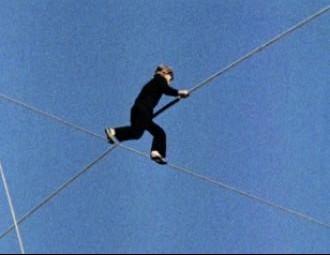Andrei Kazakevich: Belarus should find a balance between EU and Russia

Russia has nothing against improvement of relations between Belarus and the EU, but it can’t accept destruction of its integration projects and decrease of its military capability.
Such opinion in the talk with the EuroBelarus Information Service expressed Andrei Kazakevich, the director of the Institute for Policy Studies Palіtychnaya Sphera (Political Sphere).
Let us recall that during the meeting with Sergei Naryshkin, the Chairman of the Russian State Duma Aliaksandr Lukashenka stated about the necessity to develop relations with the EU, but in case it is done without prejudice to the interests of the country’s major ally – Russia.
“Falling under the complete control of Russia is disadvantageous for Belarus, as it presupposes both the loss of power and the opportunity for maneuvers. That is why Belarus together with the other countries should find balance between EU and Russia that will give our country certain stability”, - Andrei Kazakevich said.
The statement made by the president can be considered a signal to find such balance in foreign policy relations, the expert believes; though he admits that it can contradict Russian interests to some degree. “Russia is ready for Belarus to support such balance in case some strategic issues are guaranteed to it, and that becomes the reason for discussion”, - the political scientist noted.
Where does the borderline of Belarus-EU cooperation, the crossing of which is not supported by Russia, lie?
“This borderline can be relocated, - Andrei Kazakevich noticed. – However, for now Russia can’t accept Belarus’ withdrawal from Eurasian integration projects, as well as wider cooperation between Belarus and NATO. The problems can also appear if the military cooperation with Russia and status of Russian defense facilities will be questioned”.
Andrei Kazakevich allows that the Lukashenka’s remark can be addressed to the European politicians, too, “in order to demonstrate that Belarus looks upon Europe as upon important political partner and won’t entirely follow Russian politics”.
But does it mean that after these words Europe can count on certain steps and actions taken by Belarusan authorities?
“They can be taken, - the expert admits. –Some features of that are noticeable, and certain improvements in Belarus-EU relations are quite possible now, though we shouldn’t wait dramatic and irreversible changes in both official and informal relations in this direction”.
-
03.01
-
07.10
-
22.09
-
17.08
-
12.08
-
30.09








































